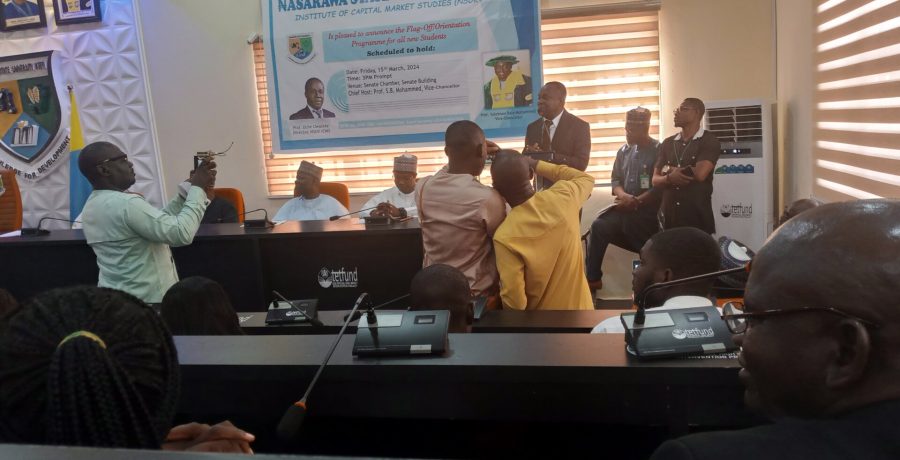
Professor Magnus Kpakol, CEO/Chairman of the Economic Center, delivered a captivating speech at the flag off event of
the Institute of Capital Market Studies at Nasarawa State University Keffi, Nigeria. In his goodwill message,
Prof. Kpakol said “we must prioritize investing in our people’s knowledge, skills, and behavior to unlock
Nigeria’s true potential”.
Professor Kpakol also emphasized the importance of human capital, arguing that it is a combination of education,
experience, health, and behavior, which is the missing piece in Nigeria’s economic puzzle.
He highlighted the need to move beyond merely moving money around and instead focus on how these
investments can elevate the living standards of Nigerians.
He praised the initiative as a potential turning point, possibly the first in Africa. He envisioned it as a springboard for
Nigeria and Africa’s overall economic development. He urged the audience to set their sights high, believing this
would be a world-class program. He further expressed his admiration for the students; eagerness to participate,
recognizing their potential as the future generation of business leaders. He encouraged them to develop the
necessary leadership skills to manage resources effectively and navigate the complexities of the economic landscape.
Professor Kpakol recounted an anecdote from his time as an economic advisor to the President. He advocated that
Nigeria and other African countries should develop their economic solutions and foster collaboration
with international organizations for support, and not allow international organizations to dictate how
to resolve their economic challenges.
The speech resonated with the audience, particularly the emphasis on global partnerships.
Professor Kpakol argued that collaboration is key to success, citing examples of powerful nations like the
United States and Canada who leverage strong international ties.
Finally, Professor Kpakol concluded with a call to action, urging Nigerians to invest in their peoples potential as the key to economic prosperity.
Cool photography stuff sent to you twice a month.